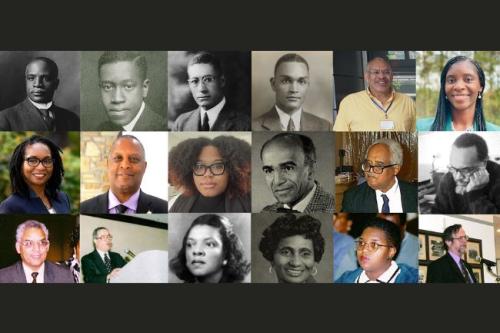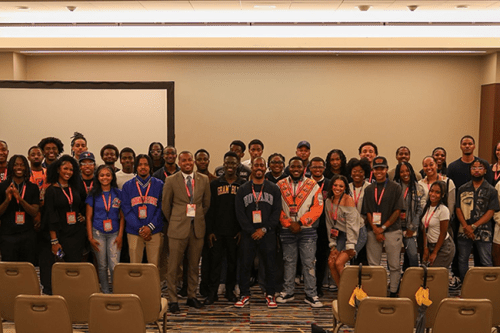WASHINGTON – An unprecedented period of enrollment growth, private giving, and federal investment have earned Howard University prominent headlines in recent years. Today, two of the world's leading economic analysis firms affirmed those headlines, announcing higher ratings based upon the university's financial position and stability.
Both the Fitch and S&P Global Ratings agencies revised their rating outlooks for Howard University to positive from stable recognizing the exceptional strategy Howard University has executed over multiple years to increase its financial strength.
S&P Global Ratings stated its outlook “reflects the university’s solid enrollment trend despite the pandemic, execution of some strategic initiatives, including program developments and identifying health care partnerships as well as improved operating performance.”
Fitch affirmed its bond rating and revised its outlook to positive. They also assigned the same rating/outlook to the expected series 2022 issuance.
“To achieve the seemingly impossible required the leadership team to be bold, to shoulder criticism, and execute jumps on the proverbial ladder to success, even when the rungs were missing,” said Howard University President Wayne A. I. Frederick. “We made significant investments to improve the financial strength and standing of Howard University, including implementing the most significant compensation increases for faculty in recent history and the renovation of teaching and recreational spaces. With a strong and stable fiscal foundation and well-established relationships, we are in a better position to further invest in our campus and in our surrounding community. This next bond issue allows us to expand our impact. The outlook for Howard is incredibly bright.”
Howard University ended FY 2021 with a change in net income from operations of $204 million leading to more than $1.1 billion in net assets, an increase of $437 million, for the first time in its prestigious history. Those financial results are the successful culmination of several years of strategic investment and change for Howard University.
The foundation for Howard University’s bold strategy began years before its recent gains in philanthropic investment. The University’s leadership focused on building a more robust development infrastructure, executed major real estate undertakings, and planned for a multiyear increase in undergraduate enrollment. The progress was catalyzed by a $10 million gift from Bruce and Martha Karsh in 2020, which at the time, was the largest gift in the University’s history. Soon after, multiple transformational gifts, including a $40 million gift from author and philanthropist MacKenzie Scott and a $32.8 million gift from Bloomberg Philanthropies to support a debt-free education for College of Medicine students, were exactly what the University needed to undergird its financial sustainability.
Howard University received $170 million in philanthropic investments and pledges in FY 2021. These generous gifts include:
-
$30 million for supporting journalism and communications students and establishing a new Center for Journalism and Democracy, made possible by donations from the Knight Foundation, John D. and Catherine T. MacArthur Foundation, Ford Foundation, and an anonymous donor;
-
A $20 million endowment for the new Marriott-Sorenson Center for Hospitality Leadership from the J. Willard and Alice S. Marriott Foundation; and
-
A gift of more than $10 million to the School of Business to create the HPS Center for Financial Excellence from HPS Investment Partners and The Kapnick Foundation.
To read more about Howard University’s revised ratings, click here.
###
About Howard University
Founded in 1867, Howard University is a private, research university that is comprised of 14 schools and colleges. Students pursue more than 140 programs of study leading to undergraduate, graduate and professional degrees. The University operates with a commitment to Excellence in Truth and Service and has produced one Schwarzman Scholar, three Marshall Scholars, four Rhodes Scholars, 12 Truman Scholars, 25 Pickering Fellows and more than 165 Fulbright recipients. Howard also produces more on-campus African American Ph.D. recipients than any other university in the United States. For more information on Howard University, visit www.howard.edu.





